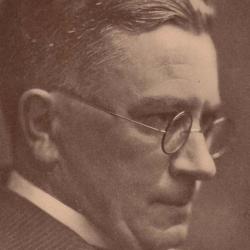by Philip Carr-Gomm ~
 Nowadays it is quite common to see psychologists, psychotherapists and psychiatrists aligning themselves with Druidry. We live in enlightened times. But even in earlier years, before the ‘Great Enlightenment’ of the 1960s, there is evidence that some of those working in these professions were drawn to Druidry. One of these figures was the psychiatrist E.Graham Howe, who helped found the influential Tavistock Clinic in London, and was a friend and advocate of the revolutionary psychiatrist R.D.Laing. Howe developed Jung’s theory of the four functions to include an understanding of esoteric anatomy, and wrote The Mind of the Druid – a book which is explored by psycho-spiritual psychotherapist Ian Rees in his Mount Haemus paper, which you can read here. Another was Professor Henry Chellew, a member of the Ancient Druid Order, out of which the Order of Bards Ovates and Druids emerged fifty years ago.
Nowadays it is quite common to see psychologists, psychotherapists and psychiatrists aligning themselves with Druidry. We live in enlightened times. But even in earlier years, before the ‘Great Enlightenment’ of the 1960s, there is evidence that some of those working in these professions were drawn to Druidry. One of these figures was the psychiatrist E.Graham Howe, who helped found the influential Tavistock Clinic in London, and was a friend and advocate of the revolutionary psychiatrist R.D.Laing. Howe developed Jung’s theory of the four functions to include an understanding of esoteric anatomy, and wrote The Mind of the Druid – a book which is explored by psycho-spiritual psychotherapist Ian Rees in his Mount Haemus paper, which you can read here. Another was Professor Henry Chellew, a member of the Ancient Druid Order, out of which the Order of Bards Ovates and Druids emerged fifty years ago.
For those who love browsing in second-hand bookshops there is nothing more exciting than discovering an obscure volume tucked away on a shelf in one of these shops, forgotten for years perhaps, that speaks directly to our interests. Some years ago I came across just such a volume: The Encyclopedia of Psychology published by the Psychology Foundation in Brussels in 1928. The copy I found, perhaps in one of those lovely old shops in Hay-on-Wye, I can’t remember exactly, had been in the main library of Pius the Twelfth College in Basutoland. Here was a collection of short articles, each accompanied by an earnest portrait photograph and the signature of the author. Contributors were not only academics, but lay writers too: Madame Tamara Karsavina giving us tips on ‘Poise and Power’, Miss Fanny Lea writing on ‘Needless Apprehension’, the Rev.Thomas Cameron on ‘The Seven Deadly Sins.’ In ‘Dangers Incidental to Boyhood’ Dr R.D.Reid, ex-president of the Oxford University Archaelogical Society, and House-Master of a boy’s school in Dorset, advises adults to warn a young lad ‘that wastage of his life fluid will result in lowered efficiency all over his body. Eventually, it will bring utter disaster.’
What a relief it was, then, to find amongst this odd collection an article by someone who had actually studied psychology – the druid Professor Henry Chellew, lecturer on Psychology at the University of London. Since this particular encyclopedia of Psychology is undoubtedly rare, in the service of historical record and curiosity, you can find here the Prof’s entry: an essay on ‘Mental Distraction’ scanned from the book into a PDF which you can download from the link here.